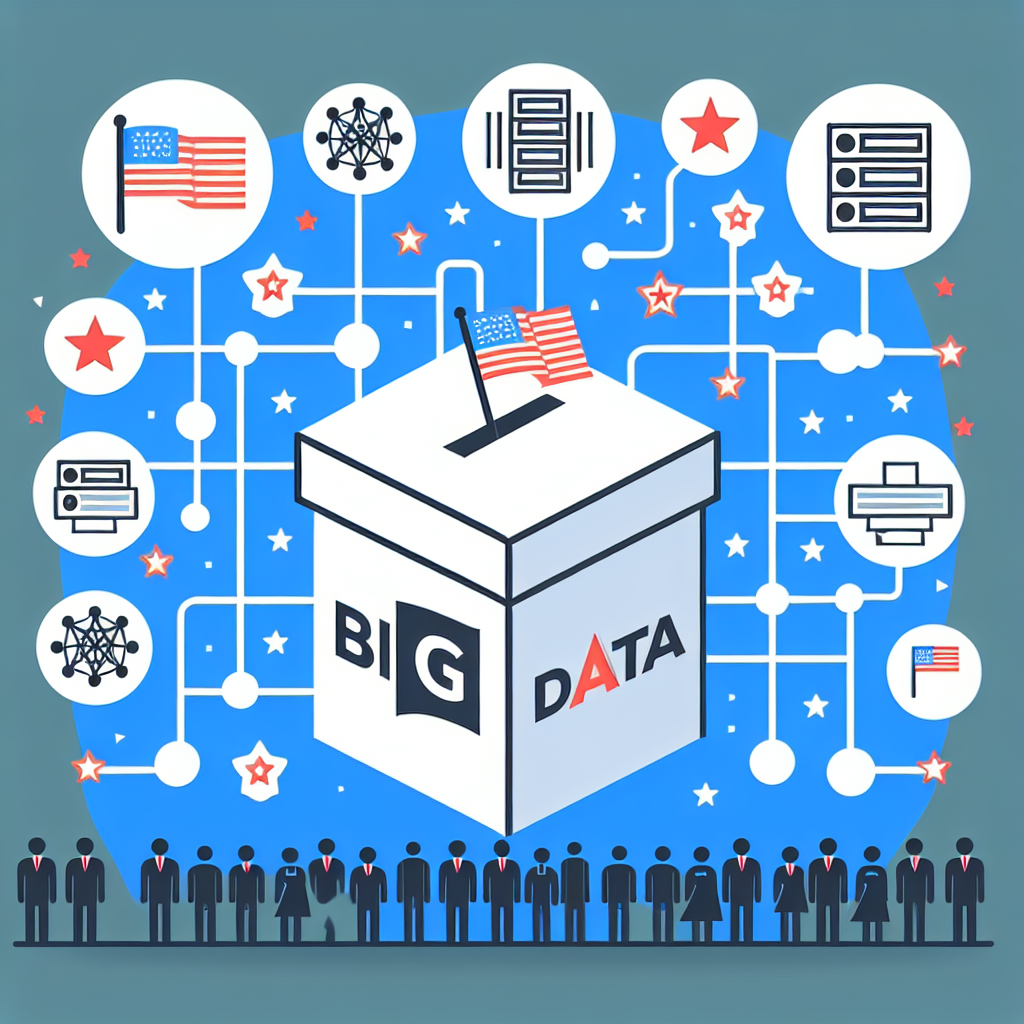In recent years, the use of big data has become a crucial tool in political campaigns. Big data refers to the vast amount of information that is collected from various sources, such as social media, websites, and other digital platforms. This data is then analyzed to gain insights into voter behavior, preferences, and trends, which can help political candidates and parties tailor their campaigns to target specific demographics and mobilize supporters.
The influence of big data on political campaigns has been significant, with many candidates using sophisticated data analytics tools to gain a competitive edge. By analyzing data on voter demographics, sentiment, and behavior, political campaigns can better understand their target audience and tailor their messaging and outreach efforts to resonate with voters. This targeted approach can help campaigns identify swing voters, mobilize supporters, and ultimately win elections.
One of the key ways in which big data has influenced political campaigns is through microtargeting. Microtargeting involves using data analytics to identify specific groups of voters based on various criteria, such as age, gender, location, and interests. By targeting these groups with tailored messages and advertisements, political campaigns can effectively reach out to and mobilize key demographics.
For example, a campaign may use data on social media interactions to identify potential supporters who are interested in specific policy issues, such as healthcare or education. The campaign can then target these individuals with personalized messages and advertisements that resonate with their interests, increasing the likelihood that they will support the candidate.
Big data has also revolutionized the way political campaigns fundraise. By analyzing data on donor behavior and preferences, campaigns can identify potential donors who are likely to contribute to their cause. This targeted approach to fundraising can help campaigns maximize their resources and reach their fundraising goals more efficiently.
Furthermore, big data has enabled campaigns to measure the effectiveness of their outreach efforts in real-time. By tracking data on voter engagement, social media interactions, and other metrics, campaigns can quickly identify which strategies are working and adjust their tactics accordingly. This data-driven approach to campaigning allows candidates to be more nimble and responsive to changing trends and voter preferences.
In addition to its impact on political campaigns, big data has also raised concerns about privacy and data security. With the vast amount of personal information that is collected and analyzed in political campaigns, there is a risk that this data could be misused or exploited for nefarious purposes. It is important for campaigns to prioritize data security and transparency to ensure that voter information is protected and used ethically.
Overall, the influence of big data on political campaigns is undeniable. By harnessing the power of data analytics, campaigns can gain valuable insights into voter behavior, preferences, and trends, which can help them tailor their messaging and outreach efforts to target specific demographics and mobilize supporters. As technology continues to advance, it is likely that big data will play an increasingly important role in shaping the future of political campaigns.
FAQs:
Q: How is big data collected in political campaigns?
A: Big data is collected from various sources, such as social media, websites, and other digital platforms. Campaigns may also collect data through surveys, focus groups, and other methods to gain insights into voter behavior and preferences.
Q: How is big data used in political campaigns?
A: Big data is used to analyze voter demographics, sentiment, and behavior to tailor messaging and outreach efforts to target specific demographics and mobilize supporters. It is also used for microtargeting, fundraising, and measuring the effectiveness of campaign strategies.
Q: What are the benefits of using big data in political campaigns?
A: The benefits of using big data in political campaigns include gaining insights into voter behavior and preferences, targeting specific demographics with tailored messaging, maximizing fundraising efforts, and measuring the effectiveness of campaign strategies in real-time.
Q: What are the concerns about using big data in political campaigns?
A: Concerns about using big data in political campaigns include privacy and data security risks, as well as the potential for voter information to be misused or exploited for nefarious purposes. It is important for campaigns to prioritize data security and transparency to protect voter information.
Q: How can voters protect their privacy in the age of big data?
A: Voters can protect their privacy by being cautious about sharing personal information online, using privacy settings on social media platforms, and being aware of how their data is being collected and used by political campaigns. It is also important for voters to support candidates and parties that prioritize data security and transparency.

